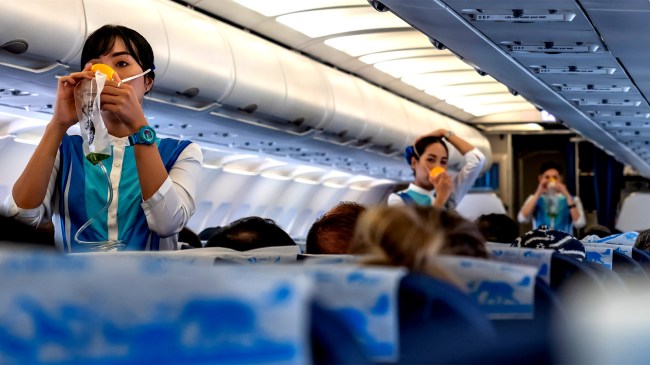iStockphoto
A former flight attendant has shared the signs that something may actually be wrong on your plane which could result in a emergency landing.
While flying is actually one of the safest forms of travel, when something does go wrong there can be significant cause for alarm.
As one former flight attendant recently explained, the time to actually worry is when you see the cabin crew doing a couple of things.
“Increased activity from the crew, including frequent communication with the cockpit, can indicate an issue,” former flight attendant Lisa Hughes told Metro this week.
She also noted that changes in tone or urgency in announcements from the cockpit or cabin crew are signs that something unusual might be happening with the plane.
“The crew may also prepare emergency equipment or brief certain passengers (like able-bodied individuals) to assist in a potential evacuation,” she said.
Hughes also explained that using your senses is a good way to know if something is wrong.
“Unusual noises, vibrations, or changes in the flight pattern (such as sudden altitude changes) can indicate mechanical issues,” said Hughes.
“Changes in cabin lighting, deployment of oxygen masks, or the initiation of emergency protocols are clear signs of trouble.”
Possible reasons for needing to perform an emergency landing include unusual noises, loss of cabin pressure, engine problems, medical emergencies and severe health issues, security threats, and severe weather conditions, especially if it is unexpected.
Flight attendants like Lisa Hughes commonly share inside information and flying tips on social media these days.
Another example of this is Henny Lim, an airline hostess for Cebu Pacific in the Philippines, who was featured on Tuesday by the New York Post answering the question, “Why does the cabin crew sit during takeoff and landing?”
It turns out that they are putting themselves in what they call the “bracing position.”
“The aim is to keep the body in a rigid pose so that if there was any impact from an unplanned emergency, the body is damaged less,” she said.
“This keeps body movement restricted so that there is less chance of injury if there was an impact.”
Other recent tips that have been shared by flight attendants online include warnings about using the bathroom, knowing where the germ hotspots are, and why you shouldn’t drink tea or coffee on a plane.

